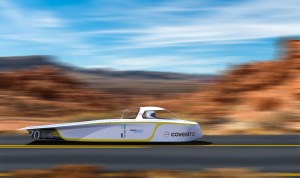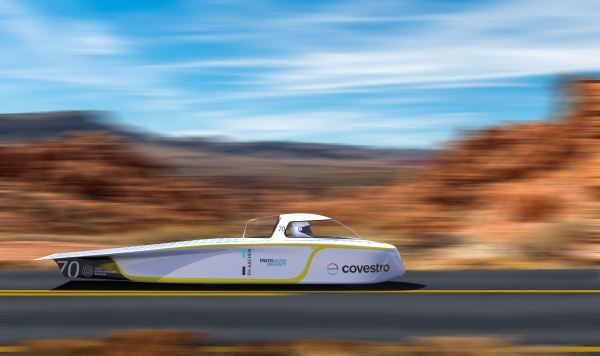For more than 30 years, the Bridgestone World Solar Challenge has welcomed the greatest minds from around the world to Australia to push the limits of technological innovation.
Travelling more than 3,000km from Darwin to Adelaide, last year’s event attracted student teams from more than 30 countries.
The students and their support team must engineer and build a vehicle that will withstand some of the world's most challenging landscape.
The 2019 competition marked the 15th journey from the Top End to Adelaide.
The goal was to cover 3,022 km of the Australian desert powered only by the sun. Participants have only one week to cover the distance.
One of the participants was Team Sonnenwagen from Aachen, Germany – competing in the in the biennial event for the second time.
To develop their solar-powered car, the students relied on the lightweight, wear-resistant and lubrication-free iglidur plain bearing technology made of durable tribo-polymers from igus.
This enabled the team to comfortably finish sixth in the race – and pick up two special awards.
"The bearings are immensely important because they hold the car together", says Kersten Heckmann of Team Sonnenwagen. "If a bearing fails, the repair is extremely time-consuming." In addition, the bearings used had to be wear-resistant and lightweight.
Because the lighter the solar-powered car, the more efficient it can drive and cover a longer distance.
Key benefits of igus tribo-plastics
The lightweight iglidur plain bearing technology of igus can be found in countless places in the solar-powered car.
Self-adjusting igubal clevis joints made of iglidur J are used in the telescopic mechanism for the solar car cover and in the steering wheel. The same material is also found in the form of plain bearings in the suspension of the rear wheels and in the steering gear. The wear-resistant and lubrication-free endurance runner has a very low coefficient of friction on a variety of shaft materials, especially in dry operation and is vibration-dampening.
An advantage especially for the steering. In the hinges of the cover lock there are also plain bearings made of the material iglidur G. The tribo-polymer is cost-effective and has a high wear resistance.
Special solution printed quickly
The cover of the solar car posed a special challenge to the team. The driver must be able to open and close the car independently when entering and exiting, which was one of the rules of the Challenge. This is a difficult task, as it is 5m long, barely 1m in width and weighs 25kg with the solar cells.
The opening was jerky and needed a lot of force. The problem lay in the heavy, printed bearings made of standard polymer. The team gave an urgent order to igus for 3D printed bearings made from high-performance polymer iglidur I3.
The laser sintering material is characterised by its low coefficient of friction and, like all iglidur materials, is resistant to dust and dirt and is ideally suited for the desert. Thanks to the use of the printed bearing, the driver only needed a few seconds to get in and out.
Projects such as Team Sonnenwagen are supported by igus as part of the "young engineers support" program.
With the university initiative, igus and its Australian distributor Treotham Automation want to support pupils, students and lecturers with free samples, sponsorships and the development of innovative projects.
Contact Treotham for more information.
Treotham Automation Pty Ltd
Ph: 1300 65 75 64


